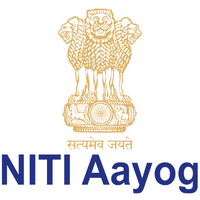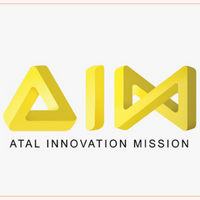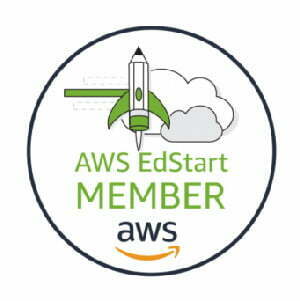Career Guidance for Students: Navigating Choices After 10th and 12th
Introduction
Life after school is filled with exciting opportunities, but it can also be a challenging time for students. Deciding on the right career path is one of the most critical choices they face, especially after Class 10 and Class 12. This is where career guidance plays a pivotal role. It not only helps students understand their interests and strengths but also provides a structured pathway to achieve their goals. Platforms like Grab Guidance specialize in offering personalized career guidance services to students, ensuring they make informed decisions.
In this blog, we’ll explore the importance of career guidance for students, with a focus on the transition periods after Class 10 and Class 12. As an experienced educator, I’ll guide you through the steps, tools, and services that can make this journey smoother.
The Importance of Career Guidance for Students
Career guidance is more than just selecting a course or a profession. It’s a comprehensive process that helps students understand their abilities, aspirations, and opportunities. According to a 2023 report by LinkedIn, 72% of professionals felt they could have made better career decisions with proper guidance during their school years. This highlights the critical role of education and career guidance in shaping a successful future.
Key Benefits of Career Guidance Services:
- Clarity of Goals: Helps students set realistic academic and career goals.
- Informed Decisions: Provides information about diverse career options and emerging fields.
- Personalized Support: Matches career paths with individual interests and strengths.
- Stress Reduction: Reduces anxiety about future choices by offering clear direction.
Grab Guidance’s expert counselors provide tailored solutions to help students achieve these benefits, making it a trusted platform for career counseling.
Career Guidance After 10th: Building the Foundation
For students in Class 10, this phase marks the first major academic decision of their lives. The choice of stream—Science, Commerce, or Arts—lays the foundation for their future career. Let’s break down how career guidance can assist at this stage:
1. Understanding Interests and Aptitude
Many students feel pressured to follow traditional streams based on parental expectations or peer influence. Career guidance for students focuses on understanding their interests and aptitude through assessments and counseling sessions.
- Aptitude Tests: Tools like the Differential Aptitude Test (DAT) help identify a student’s strengths in areas like logical reasoning, language, or spatial abilities.
- Interest Inventories: These tests highlight areas of passion, such as technology, creativity, or problem-solving.
2. Exploring Stream Options
Career guidance after 10th ensures students are aware of the opportunities available in each stream:
- Science: Ideal for those interested in fields like engineering, medicine, IT, or research.
- Commerce: Best for students inclined towards business, finance, or economics.
- Arts: A perfect choice for those passionate about humanities, literature, or creative fields.
3. Setting Short-Term Goals
Once the stream is selected, career guidance services help students set achievable academic goals. For example, a student aiming for a career in medicine might focus on excelling in Biology and Chemistry while exploring co-curricular activities like science fairs.
Grab Guidance provides expert support during this critical phase, helping students choose streams that align with their future aspirations.
Career Guidance After 12th: Expanding Horizons
After Class 12, students face another significant decision: choosing a professional course or pursuing higher education. This stage often feels overwhelming due to the sheer number of options available.
1. Identifying Career Goals
Education and career guidance post-12th starts with identifying long-term career aspirations. For instance, a student interested in technology may need to decide between pursuing engineering, IT certifications, or computer science degrees.
2. Exploring Course and College Options
Career guidance after 12th involves extensive research into courses and colleges:
- Professional Courses: Fields like engineering, medicine, law, and architecture require entrance exams like JEE, NEET, or CLAT. Career counselors guide students in preparing for these exams.
- Vocational Courses: For those inclined towards skill-based careers, vocational training in areas like digital marketing, culinary arts, or animation is an option.
- Global Opportunities: Many students consider studying abroad. Career guidance services assist in understanding eligibility criteria, scholarships, and visa requirements.
3. Addressing Emerging Careers
Today, students are no longer limited to traditional professions. Career guidance services emphasize emerging fields like:
- Data Science and AI: A booming sector for tech-savvy individuals.
- Environmental Science: Ideal for those passionate about sustainability.
- Digital Marketing: A lucrative option for creative minds.
- Entrepreneurship: Guidance helps budding entrepreneurs understand the basics of starting and managing a business.
4. Financial Planning
Many students face financial constraints when pursuing higher education. Career counselors provide information on scholarships, education loans, and part-time job opportunities.
Grab Guidance’s platform connects students with experts who specialize in helping them navigate these critical decisions with ease.
Tools and Techniques in Career Guidance
Effective career guidance services rely on a combination of tools and techniques to ensure students make well-informed decisions:
- Psychometric Assessments:
- Measure aptitude, personality traits, and interests.
- Examples: MBTI, Holland Code, or Big Five Personality Test.
- Career Counseling Sessions:
- One-on-one discussions with professional counselors to address doubts and provide clarity.
- Workshops and Seminars:
- Interactive sessions with industry experts to gain insights into specific careers.
- Digital Platforms:
- Online portals like Grab Guidance provide career guidance resources, including virtual counseling and aptitude tests.
The Role of Parents and Educators
Parents and teachers play a crucial role in the career guidance process. While counselors provide expert advice, the support and encouragement from parents and educators help students gain confidence in their decisions.
How Parents Can Help:
- Avoid imposing personal preferences on career choices.
- Encourage open discussions about interests and goals.
- Support participation in career-related workshops and activities.
How Teachers Can Help:
- Identify students’ strengths and areas of improvement.
- Provide recommendations for career counseling services.
- Foster a learning environment that nurtures curiosity and exploration.
Grab Guidance also collaborates with parents and educators to ensure a holistic approach to career planning.
Conclusion
Career guidance for students is a transformative process that equips them with the knowledge and confidence to make informed decisions. Whether it’s choosing a stream after Class 10 or exploring courses after Class 12, the right guidance ensures students embark on a path aligned with their aspirations and abilities.
Platforms like Grab Guidance play a vital role in this journey by offering personalized counseling and expert support. Remember, the journey doesn’t end with selecting a career; it’s an ongoing process of learning, adapting, and growing. By leveraging career guidance services and seeking support from educators and counselors, students can navigate this journey with clarity and purpose.























